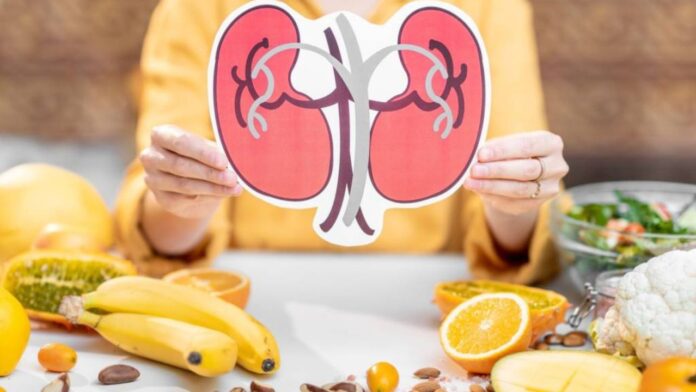The kidneys, crucial organs in our body, play a vital role in retaining beneficial substances, expelling harmful ones, and ensuring a healthy balance of essential elements like water, salt, and minerals. They act as natural filters, essential for maintaining our overall well-being. Nevertheless, similar to other organs, our kidneys require proper care and nourishment to function optimally. Neglecting hydration, consuming processed or sugary foods, or developing chronic conditions such as diabetes, high blood pressure, and heart disease can adversely affect kidney health and function.
Opting for a kidney-friendly diet is crucial to support the optimal performance of these vital organs. A vegetarian diet is considered more beneficial for kidney health, while reducing salt intake is imperative, especially since many individuals with kidney issues also have hypertension. It’s recommended to avoid salt substitutes high in potassium and instead focus on incorporating low-potassium fruits and vegetables such as apples, berries, and cabbage. Plant-based protein sources like soy, legumes, and cottage cheese are preferred over animal proteins like fish, poultry, and eggs, which should be consumed in moderation. Whole grains like brown rice and quinoa are recommended, along with healthy fats from sources like olive oil, mustard oil, or soybean oil. Limiting dairy consumption and opting for low-fat alternatives is also advisable.
Including certain foods in your diet can further promote kidney health:
- Fruits: Many fruits are naturally low in sodium and potassium and rich in fiber, making them beneficial for kidney health. Apples, berries, grapes, pears, and watermelon are particularly recommended.
- Vegetables: Non-starchy vegetables such as broccoli, cauliflower, cabbage, leafy greens, and peppers are excellent sources of essential nutrients for kidney health.
- Low-fat dairy: Low-fat dairy products like yogurt, milk, and cheese provide calcium and vitamin D necessary for bone health. Opt for low-fat or fat-free options and consume them in moderation.
- Whole grains: Incorporating whole grains like brown rice, oats, quinoa, and whole-wheat bread into your diet can help lower cholesterol levels and promote satiety.
- Lean protein: Choose lean protein sources like fish, poultry, and beans to maintain muscle mass, while limiting intake of red meat due to its high phosphorus content.

 हिंदी
हिंदी






